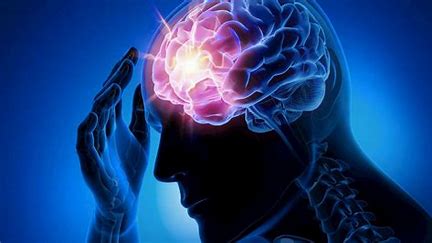Introduction
Epilepsy, a neurological disorder characterized by recurrent seizures, affects millions of people worldwide. In this article, we will delve into the intricacies of epilepsy, exploring its causes, types of seizures, diagnosis, treatment options, and the impact it has on individuals and their quality of life. By increasing awareness and understanding, we aim to promote empathy, support, and informed decision-making for people living with epilepsy.
What is Epilepsy?
Epilepsy is a chronic disorder that causes abnormal brain activity, leading to seizures. It can be caused by various factors, such as genetic predisposition, brain injuries, infections, tumors, or developmental disorders. Epilepsy is a spectrum disorder, meaning that it encompasses different types of seizures and can manifest differently in individuals.
Types of Seizures and Their Symptoms
Seizures in epilepsy can be categorized into two main types: focal (partial) seizures and generalized seizures. Focal seizures involve specific areas of the brain, while generalized seizures affect the entire brain. The symptoms experienced during seizures can vary widely, ranging from temporary confusion and staring spells to convulsions, loss of consciousness, and involuntary movements.
Diagnosing Epilepsy
Diagnosing epilepsy involves a comprehensive evaluation that includes medical history, physical examinations, and various diagnostic tests. Electroencephalogram (EEG) recordings, brain imaging (MRI, CT scans), and blood tests are commonly used to aid in diagnosis. It is crucial to distinguish epilepsy from other conditions that may present with similar symptoms.
Treatment Approaches
The goal of epilepsy treatment is to reduce or eliminate seizures, enhance quality of life, and minimize side effects. Treatment options include antiepileptic medications, lifestyle modifications (e.g., sleep management, stress reduction), ketogenic diet, vagus nerve stimulation (VNS), responsive neurostimulation (RNS), and in certain cases, surgical intervention to remove or isolate the seizure focus.
Living with Epilepsy: Challenges and Strategies
Epilepsy can significantly impact an individual’s daily life, relationships, and emotional well-being. Challenges may arise due to the unpredictability of seizures, medication side effects, social stigma, driving restrictions, and limitations in certain activities. However, with appropriate management and support, individuals with epilepsy can lead fulfilling lives. Strategies such as seizure monitoring, self-care practices, communication, and education can empower individuals to navigate challenges and promote self-advocacy.
Epilepsy Research and Advances
Ongoing research plays a crucial role in understanding epilepsy better, identifying potential causes, and developing innovative treatments. Advances in neuroimaging techniques, genetic research, and precision medicine have paved the way for personalized treatment approaches. Additionally, emerging technologies like brain-computer interfaces and seizure prediction algorithms hold promise for improved seizure management and prevention.
Raising Awareness and Support
Raising public awareness about epilepsy is vital to dispel misconceptions, reduce stigma, and promote inclusivity. Education and community support programs can help create a supportive environment for individuals with epilepsy and their families. Advocacy efforts aimed at promoting research funding, improved access to healthcare, and public policy changes are crucial to enhance the lives of those living with epilepsy.
Conclusion
Epilepsy is a complex neurological disorder that impacts millions of lives worldwide. By fostering understanding, empathy, and support, we can create an inclusive society that empowers individuals with epilepsy to live their lives to the fullest. Through continued research, advances in treatment options, and public advocacy, we can strive to improve the management, quality of life, and overall well-being of those affected by epilepsy.

